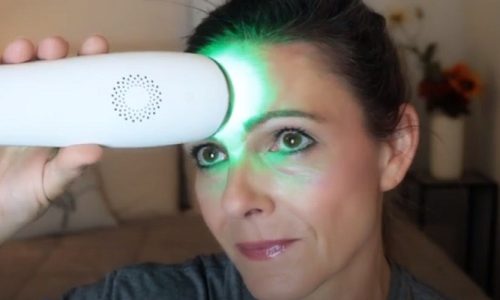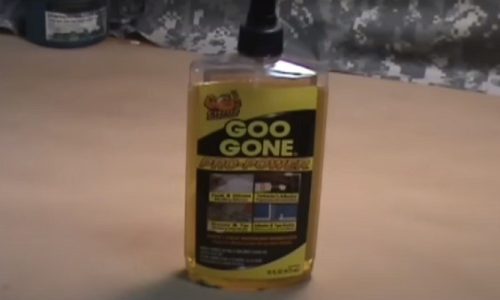Last Updated on June 18, 2025 by Jaclyn A. Neeley
Sunscreen is an essential part of any skincare routine, providing protection against harmful ultraviolet (UV) rays that can cause skin cancer, premature aging, and other skin damage. However, there is a common concern that sunscreen might dry out the skin. This article explores whether sunscreen can indeed cause dryness, the types of sunscreens that might contribute to this issue, and how to choose the right sunscreen to keep your skin hydrated and healthy.
Sunscreen and Its Ingredients
Sunscreens are formulated to protect the skin from UV radiation by either absorbing or reflecting the rays. There are two main types of sunscreens: chemical and mineral (physical).
- Chemical Sunscreens: These contain organic compounds like oxybenzone, avobenzone, and octinoxate which absorb UV radiation and convert it into heat, which is then released from the skin. Chemical sunscreens are often preferred for their lightweight and non-greasy formulas.
- Mineral Sunscreens: These contain inorganic compounds like zinc oxide and titanium dioxide, which act as physical barriers that reflect and scatter UV rays. Mineral sunscreens are generally recommended for sensitive skin as they are less likely to cause irritation.
Can Sunscreen Cause Dry Skin?
The concern that sunscreen can dry out the skin is not unfounded. Certain ingredients in sunscreens, particularly in mineral formulations, can contribute to dryness. For example, zinc oxide, a common ingredient in mineral sunscreens, is an astringent that can block natural skin secretions such as sweat and sebum, potentially worsening dry skin conditions.
Moreover, some chemical sunscreens contain alcohol and other drying agents that can strip the skin of its natural oils, leading to dryness and irritation. However, not all sunscreens cause dryness, and many modern formulations include hydrating ingredients to counteract this effect.
Hydrating Ingredients in Sunscreens
To combat the drying effects of some sunscreen ingredients, many formulations now include moisturizing components. Here are some key hydrating ingredients to look for in sunscreens:
- Ceramides: These are fat molecules found naturally in the skin that help strengthen the skin barrier and retain moisture.
- Hyaluronic Acid: A powerful humectant that attracts and holds moisture in the skin, keeping it hydrated and plump.
- Glycerin: Another humectant that draws water to the skin from the environment and from within the body.
- Vitamin C: Known for its brightening properties, it also helps prevent water loss in the skin barrier.
- Plant Oils and Extracts: Ingredients like shea butter, grapeseed oil, avocado oil, jojoba oil, and sunflower oil provide hydration and nourishment to the skin.
Choosing the Right Sunscreen for Dry Skin
When selecting a sunscreen for dry skin, it is crucial to choose a product that not only provides UV protection but also hydrates and nourishes the skin. Here are some recommendations:
- Isntree Hyaluronic Acid Watery Sun Gel SPF50+ PA++++: This Korean sunscreen is lightweight and nourishing, making it ideal for dry skin. It leaves no white cast and is suitable for all skin tones.
- Beauty of Joseon Relief Sun: Rice + Probiotics SPF50+ PA++++: This sunscreen is enriched with probiotics, rice, and green tea to keep the skin hydrated and reduce irritation. Its hypoallergenic and lightweight formula makes it a favorite among dermatologists.
- La Roche-Posay Anthelios Hydrating Cream SPF30: This sunscreen is specifically formulated for dry and sensitive skin, providing high protection while moisturizing the skin.
- Abib Quick Sunstick Protection Bar SPF50+ PA++++: This sun stick is convenient for on-the-go application and provides hydration along with sun protection.
Sunscreen Application Tips for Dry Skin
Proper application of sunscreen is essential to ensure maximum protection and hydration. Here are some tips:
- Layering with Moisturizer: Apply a hydrating moisturizer before sunscreen to create a moisture barrier. This can help prevent the sunscreen from drying out the skin.
- Choosing the Right Formula: Opt for sunscreens labeled as “hydrating,” “moisturizing,” or “for dry skin.” Avoid formulations with high alcohol content or other drying agents.
- Reapplication: Reapply sunscreen every two hours, especially if you are sweating or swimming. This ensures continuous protection and hydration.
- Exfoliation: Regular exfoliation can help remove dead skin cells that might prevent sunscreen from being absorbed properly. However, be gentle to avoid further drying out the skin.
Common Misconceptions About Sunscreen and Dry Skin
There are several misconceptions about sunscreen and its effects on dry skin. Here are a few:
- Sunscreen Alone is Enough: While some sunscreens contain moisturizing ingredients, they should not replace your regular moisturizer, especially if you have dry skin. Using both products ensures better hydration and protection.
- All Sunscreens Cause Dryness: Not all sunscreens dry out the skin. Many modern formulations are designed to hydrate and protect simultaneously. It is essential to choose the right product for your skin type.
- Skipping Sunscreen is Better for Dry Skin: Skipping sunscreen can lead to more significant skin issues, including dryness, as UV exposure can weaken the skin barrier and deplete natural oils.
Conclusion
Sunscreen is a non-negotiable part of any skincare routine, providing essential protection against harmful UV rays. While some sunscreens can contribute to dryness, many modern formulations include hydrating ingredients that help maintain the skin’s moisture balance. By choosing the right sunscreen and following proper application techniques, you can protect your skin from UV damage while keeping it hydrated and healthy. Always look for sunscreens that are specifically formulated for dry skin and include moisturizing ingredients like ceramides, hyaluronic acid, glycerin, and plant oils.
FAQs
Why does sunscreen dry out your skin?
Sunscreen can dry out your skin due to certain ingredients like astringents, which are designed to protect against UV rays but also block bodily secretions like sweat and sebum, leading to dryness. Ingredients such as alcohol and zinc oxide, commonly found in sunscreens, can strip away natural oils, compromising the skin’s moisture barrier and causing dehydration.
Is sunscreen good for dry skin?
Yes, sunscreen is beneficial for dry skin, especially when it contains hydrating ingredients like hyaluronic acid, ceramides, and glycerin. These ingredients help maintain the skin’s moisture barrier while providing essential UV protection. Opting for sunscreens specifically formulated for dry skin can prevent moisture loss and keep the skin hydrated and protected from sun damage.
Why is my skin getting rough after using sunscreen?
Your skin may become rough after using sunscreen due to ingredients like zinc oxide, which can be drying. Additionally, some sunscreens contain chemicals or fragrances that can irritate sensitive skin, leading to roughness and texture changes. Switching to a gentler, hydrating sunscreen and ensuring proper cleansing can help mitigate these effects.
Can I apply sunscreen without moisturizer?
Yes, you can apply sunscreen without moisturizer, but it is generally not recommended for long-term use, especially for dry skin. Sunscreens do not provide the same level of hydration as moisturizers. For optimal skin health, it is best to use both, applying moisturizer first to hydrate the skin and then sunscreen to protect against UV damage.
Are there any side effects of using sunscreen on dry skin?
Using sunscreen on dry skin can sometimes lead to side effects such as further dryness, irritation, and allergic reactions. Ingredients like oxybenzone and alcohol can exacerbate dryness and cause skin reactions. To minimize these side effects, choose sunscreens formulated for dry and sensitive skin, free from harsh chemicals and fragrances.







